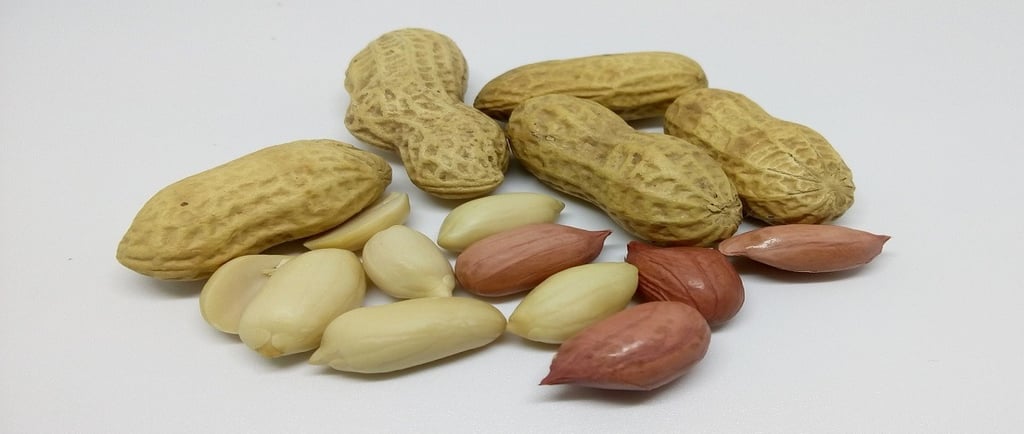What are the health benefits of Peanuts?
Peanuts have the highest protein content among nuts. They are an excellent Vitamin E and Biotin (B7) source and can improve heart health. Read this mini blog to learn more!


Peanuts, also known as groundnuts, are highly nutritious legumes. Their scientific name is Arachis hypogaea.
They are rich in polyunsaturated and monounsaturated healthy fats. Peanuts don’t contain harmful trans fats and cholesterol.
A 100-gram bag of peanuts contains 25.8 grams of protein, making it a great source of protein for muscle maintenance and recovery.
They are a great source of dietary fiber, 100 grams of peanuts contain 8.5 grams of fiber.
Peanuts are low in carbohydrates so they can be a good choice for the diabetes patient.
Biotin or vitamin B7 is an important vitamin for strengthening hair and nails, peanuts are an excellent source of biotin and can help improve hair quality.
Peanuts are a good source of Vitamin E, a fat-soluble vitamin that improves skin quality and vision.
They also contain vital minerals like magnesium, phosphorus, manganese, and copper.
Peanuts are rich in antioxidants and most of the antioxidants are present in peanuts skin. Antioxidants help neutralize free radicals that are harmful to the body.
Peanuts' glycemic index value is 14, which is low, so they don’t cause blood sugar spikes.
Peanuts are easily included in the diet. They can be consumed raw, roasted, fried, boiled, or as peanut butter.
According to the United States Department of Agriculture (USDA), peanuts contain the following macronutrients, vitamins, and minerals.
Pros of eating Peanuts
1. High protein content makes it a good option for muscle health.
2. Moderate peanut consumption may help weight management as high protein and fiber keep you fuller for longer leading to lesser calorie intake.
3. Peanuts can improve heart health due to the presence of magnesium, copper, and antioxidants like resveratrol.
4. They can help prevent stone formation in the gall bladder.
5. Presence of vitamins B1 and B3 makes it good for brain health and reduces the risk of Alzheimer’s disease.
6. Peanuts contain minerals like phosphorus and manganese that can help strengthen bones.
7. Regular consumption of peanuts can improve skin quality.
8. Nutrients like zinc and vitamin E may promote eye health.
9. Peanuts contain healthy unsaturated fats and dietary fiber that can help lower cholesterol levels.
10. With a low glycemic index, peanuts can help manage blood sugar levels.
11. Tryptophan, an amino acid in peanuts increases the serotonin hormone production that can help fight depression.
Cons of eating Peanuts
1. Peanuts are calorie-dense food, excess consumption may lead to weight gain.
2. Peanuts contain phytic acid, an anti-nutrient that can hinder iron, zinc, magnesium, and calcium absorption.
3. Peanuts are low in sodium but overconsumption may increase blood pressure.
4. Peanuts are rich in omega-6 fatty acids. Higher omega-6 levels in the body can increase inflammation.
5. People with peanut allergy should avoid its consumption. Common symptoms include skin issues, breathing problems, and irritation in the mouth and throat.
6. Excess peanut consumption may cause gas, constipation, and bloating.
7. Improper storage of peanuts can cause fungus contamination producing aflatoxin, a poisonous substance harmful to health.
Interesting Facts
1. Peanuts were first cultivated in South America.
2. Peanut oil has a high burning temperature (227 – 230 °C) so it is a good choice for high heat cooking.
3. China is the world’s largest producer of peanuts.
4. The nickname of peanuts is “Goober” derived from the the African name for peanuts “Nguba”.
